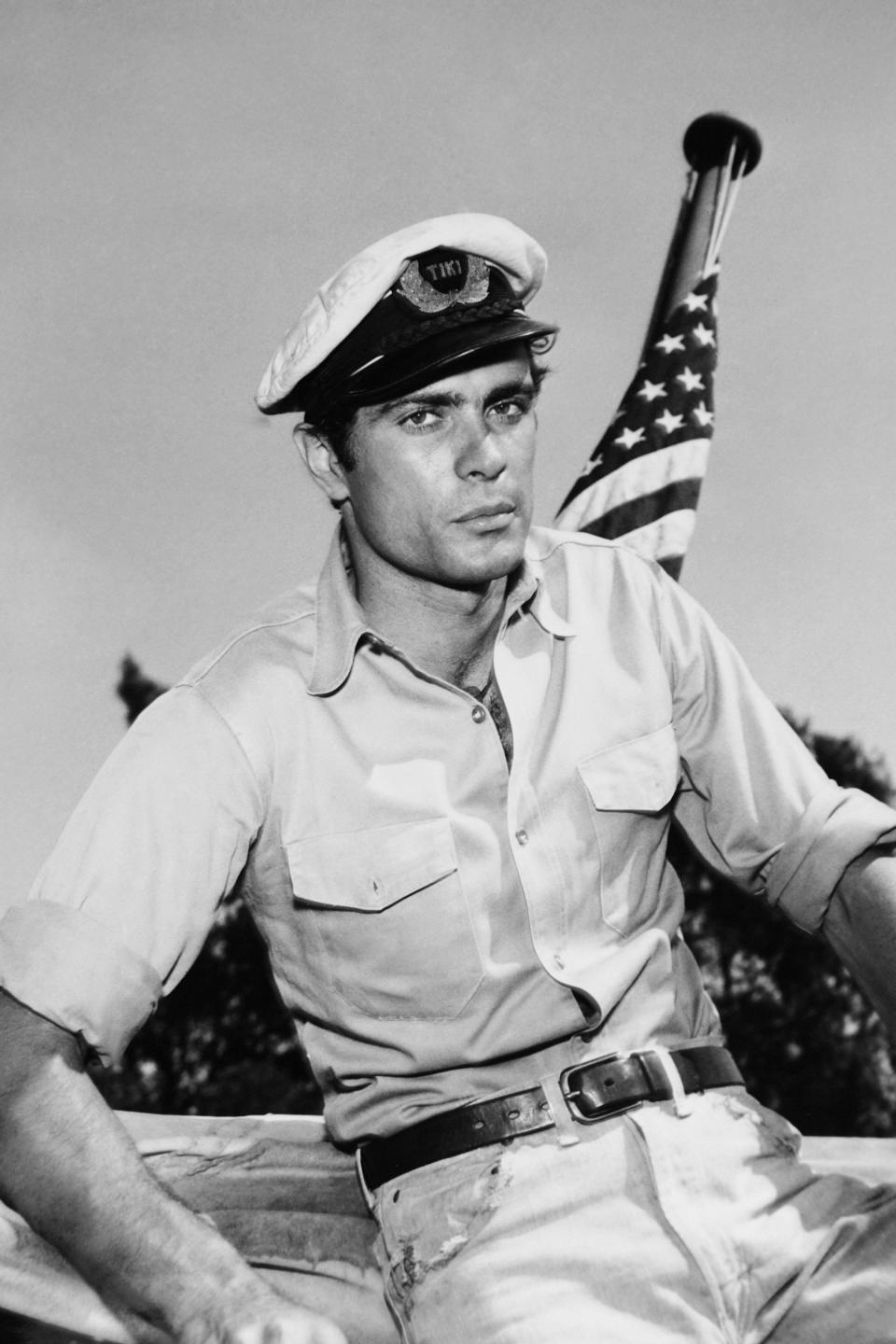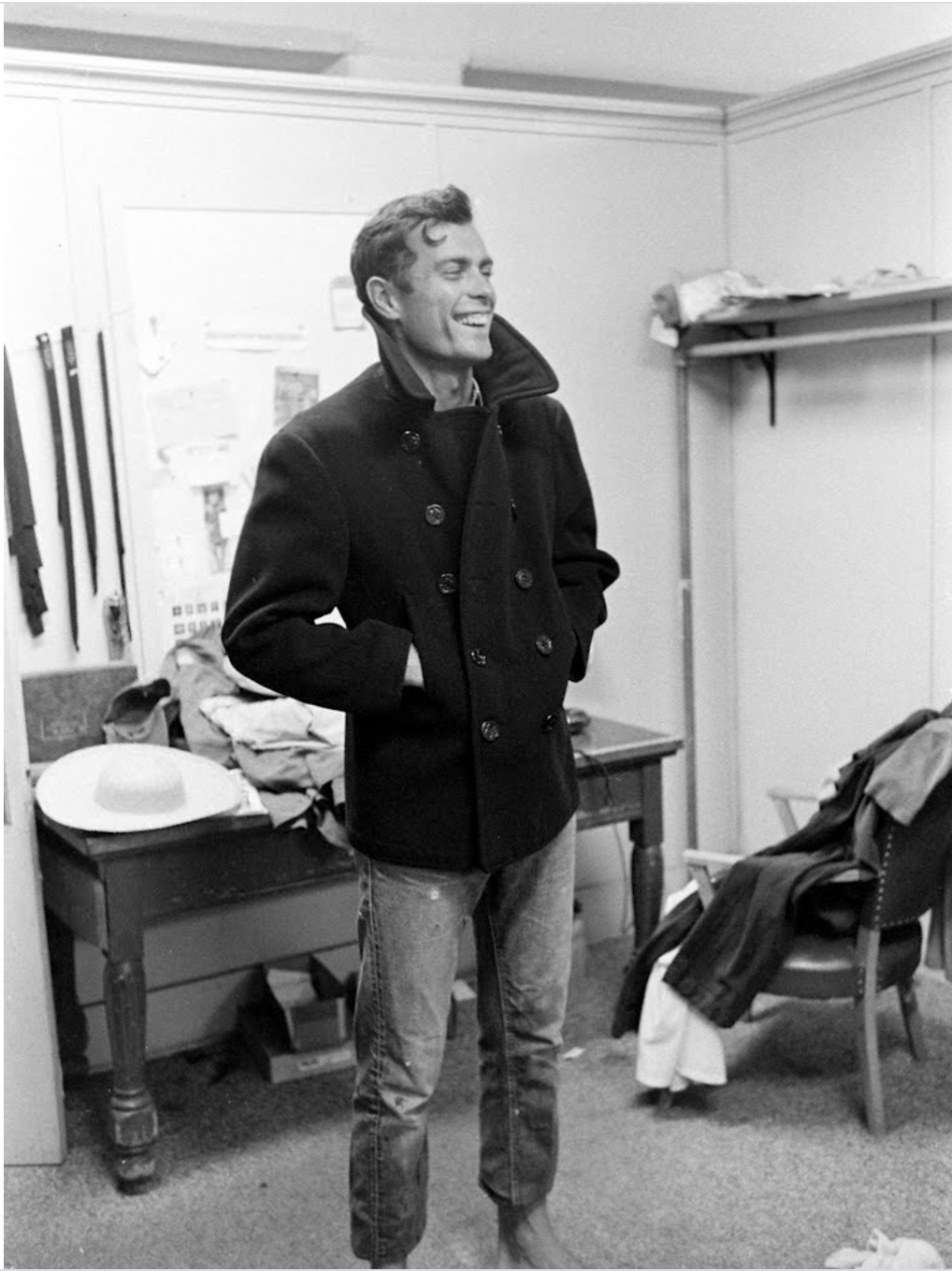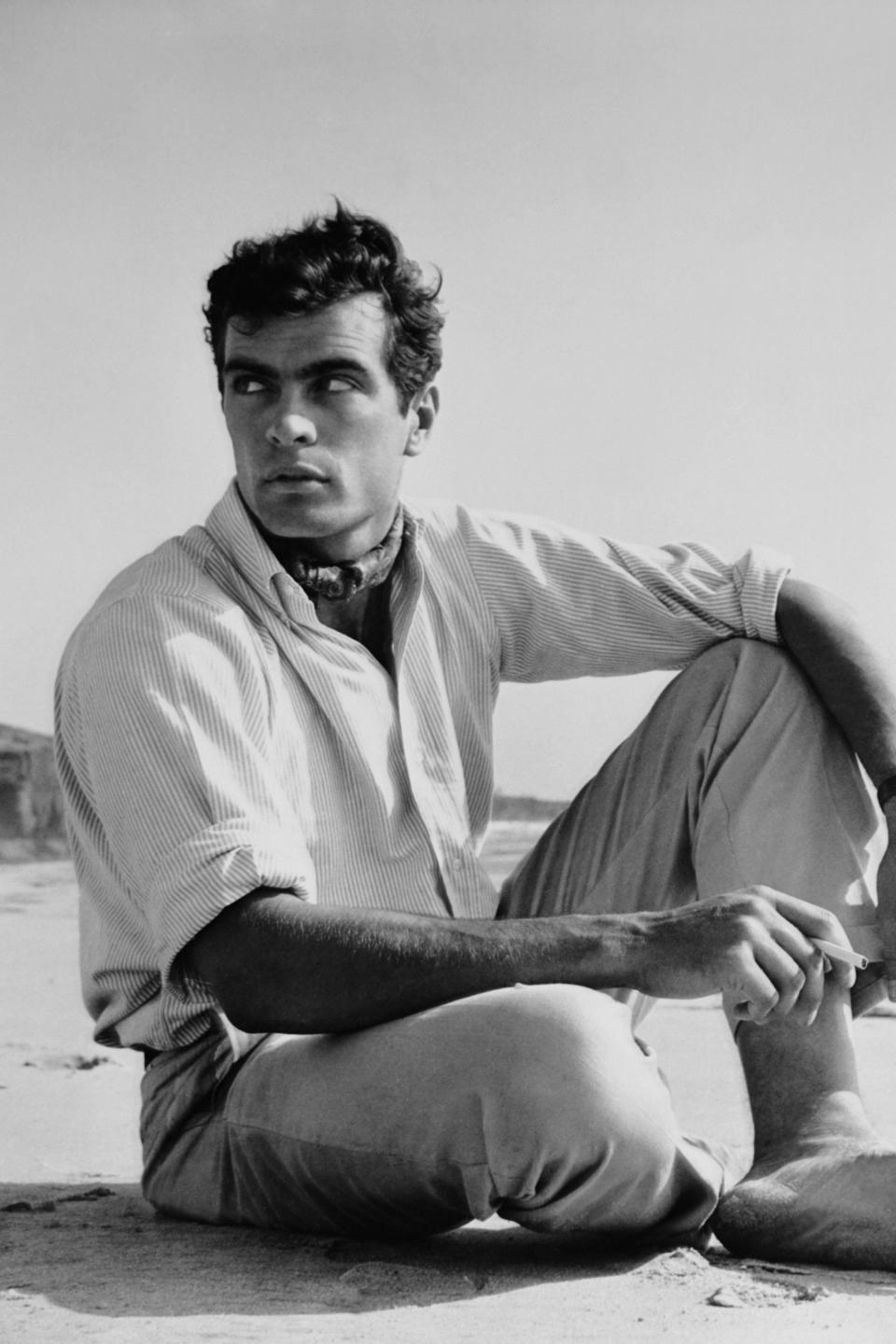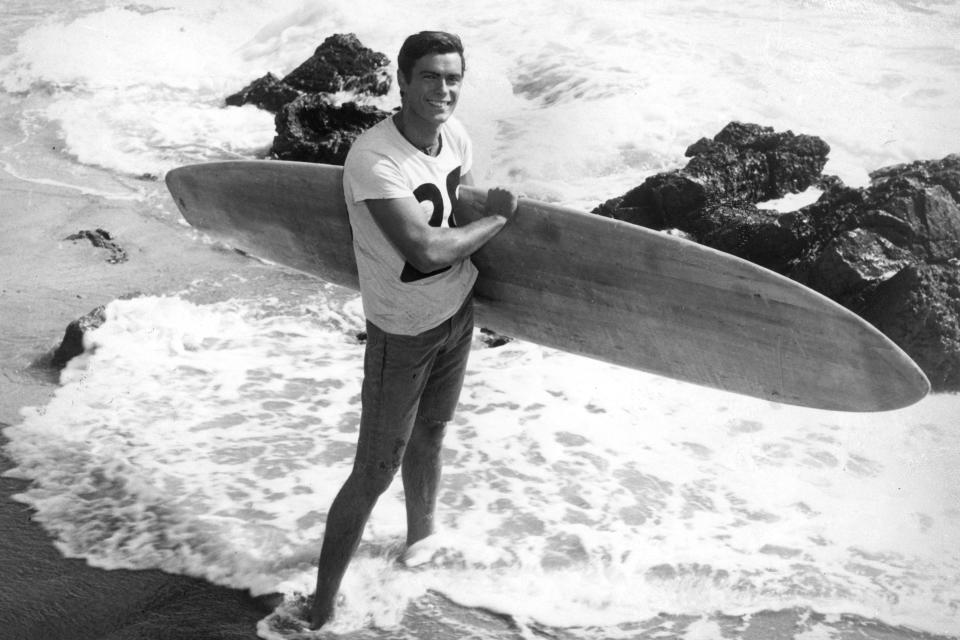“Almost Too Pretty to Be True”—Gardner McKay Is the ’60s Heartthrob Actor You Never Knew

Since it’s the spring menswear season, let’s play a game of Who’s That Guy? Which is exactly the question I asked myself when I came across a photograph of Gardner McKay. Taken for Life Magazine in 1959, it shows the actor driving through Hollywood in a top-down convertible with his dog, Pussycat, enjoying the breeze. Nice work if you can get it…sort of.
For McKay, acting would have been but an episode in an action-packed life, had he not been dogged by fame. No matter his other accomplishments as a critic, playwright, and author; to the public, wrote McKay in his memoir, Journey Without a Map, “all I was was someone who wasn’t on TV anymore.”

McKay had been summoned to Hollywood by MGM on the basis of his looks—imagine Cary Grant as a Harvard undergrad with a dash of Peter Beard’s ruggedness. The studio had seen the fashion photographs Richard Avedon had taken of McKay with Suzy Parker, and signed him. (“Suzy changed clothes a lot,” the sometime model would later recall. “Once I walked in on her and she screamed. It was odd. We were to be the picture of romance. The pictures are in museums, me with my Charlie Chaplin shoes…I didn’t do anything.”)

ADVENTURES IN PARADISE, Gardner McKay, 1959-62, TM and Copyright (c)20th Century Fox Film Corp. All
Critics would later say much the same about McKay’s acting in Adventures in Paradise, the TV series based on a concept by James Michener and produced by the writer Dominick Dunne, that made McKay a household name. In a 1999 Vanity Fair article, Dunne took credit for scouting the 6’ 5” heartthrob. “One day in a coffee shop, I saw, sitting at a nearby table in a languid pose, reading a book of poetry, a startlingly handsome young man with attitude, whom I later described to Martin Manulis, the head of television at Fox, as ‘a little Gary Cooper, a little Cary Grant, a little Ty Power, and a lot of Errol Flynn.’ ” On the screen McKay played Adam Troy, a veteran turned captain of the Tiki schooner that sailed in the South Pacific. Sailing was something as natural to McKay as walking, so that part of his performance was solid.

TBDADIN FE014
If he was wooden on screen, as the critics thought, this chisel-jawed head-turner was a natural at other things. “He behaved like an old-time movie star—drove a white Chevy convertible with the top down and always had his huge, floppy dog, Pussycat, lounging by his side,” wrote Dunne. “Marilyn Monroe, then at her peak, may have been the queen of the studio, but Gardner got more fan mail.”

Adventures in Paradise first aired in 1959. This was around the time of the beats, after the Korean War and before the London Youthquake and the hippies. The world was in search of new (but not too new) kinds of heroes. The concept of gender remained resolutely binary. One studio executive heralded McKay as an exemplar of a type he dubbed “the Hearty Young Men,” who existed somewhere between the Wild West and the Waterfront. “The public is tiring of neurotic heroes,” said McKay in a 1957 interview with a Hollywood reporter, who noted: “The guy’s not only handsome, he’s a departure from the ‘I’ve-got-big-problems actor who must commune with his psychiatrist before kissing the leading lady. Additionally Gardner is a he-man off-screen.”

McHugh's Bash
And a Casanova, and a loner. He was always up against himself, in the sense that his looks, to some extent, defined him. This was true from childhood. McKay was born in Manhattan, his father’s job in advertising took the family to France where he spent his youth. His mother is usually glitteringly described as a “socialite.” The truth was more prosaic; she seems to have had a mental illness, and some delusions of grandeur. The family finances didn’t accommodate a high-flying lifestyle. (McKay left Cornell midway as he couldn’t afford the tuition after his father’s death). Keeping up appearances was important to the family. There were prep schools and sailing lessons. When the former wasn’t working out too well, McKay was sent to a “sailing school” that turned out to be a scam; he was basically put to work as a mate for a year.

Oct. 14, 2002 - GARDNER MCKAY . ARCHIVE(Credit Image: © Globe Photos/ZUMAPRESS.com)
In the summer of 1959, before Adventures in Paradise aired, Life magazine dedicated a cover to the “actor, athlete, artist,” who, in his striped, cable-knit, V-neck sweater looks like he walked straight out of a J. Press catalog. “Gardner has created a fictitious character named J. Walter Grimjaw, the person he is fighting not to become,” wrote Shana Alexander in her profile of the actor. “Grimjaw is a gray-flanneled conformist. He belongs to the Book-of-the-Month Club. […] A Grimjaw portrait of Gardner is any shot of him which emphasizes how handsome he is. In fighting off Grimjaw,” she continued, “McKay wears rumpled clothes, lives in a disheveled mountain cabin, cooks his breakfast with a knife, and sends out passages from Dylan Thomas’s poetry as Christmas cards. He is not, however, a beatnik.”

TBDADIN FE015
He was a heartthrob of grand order, and a sex symbol. “People loved his looks,” noted Dunne, “so each week we’d figure out a reason for him to remove his T-shirt during a scene in order to show off his bod. That may not sound racy now, considering what gets by, but Gardner McKay stripped to the waist, showing hair below the belly button, was as racy as it could get back then, and girls and gays in great numbers tuned in to stare at him.” Such was his appeal he even put some French off food. According, again, to Dunne, “Frenchwomen were so entranced with watching Gardner as Adam Troy that they stopped cooking dinner.”

THE PLEASURE SEEKERS, Gardner McKay, 1964, ©20th Century-Fox, TM & Copyright. Courtesy: Everett Coll
The actor wrote his own Hollywood ending, announcing that he would leave after recording the 100th episode of the series. Neither personal requests from George Cukor, who wanted the actor to play beside Marilyn Monroe in Something’s Got to Give, nor the blond bombshell herself, could convince him to stay.
McKay preferred to walk alone, refusing to conform (at least for any amount of time) to what was expected of him—or his looks. McKay’s individualism was a form of rebellion, an escape from the norm. Despite his classic good looks, in the end, McKay was, like his fan Jimmy Buffet who name-checked the actor in a 1983 song, “the people our parents warned us about.”

ADVENTURES IN PARADISE, Gardner McKay, 1959 - 1962.
Originally Appeared on Vogue

